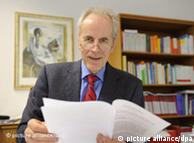Indonesian President Susilo Bambang Yudhoyono on Thursday acknowledged his country lacked credibility as it seeks billions of dollars in foreign aid to battle climate change.
He said Indonesia suffered a “trust deficit” in the international community that was hampering its ability to win backing for initiatives such as a moratorium on deforestation and cuts to greenhouse gas emissions.
“This is the reason for reform. We can turn the trust deficit into a trust surplus. Let’s be sure that the institutions in this country are credible,” he said in his opening remarks to a weekly cabinet meeting.
Indonesia is one of the top emitters of climate-warming gases blamed for rising global temperatures, largely through deforestation due to illegal logging and clearing for palm oil plantations.
Yudhoyono shocked environmentalists and palm planters alike last month when he announced a two-year moratorium on deforestation from 2011 in exchange for a billion dollars in aid from Norway.
But no one knows how the moratorium will be enforced in a country where experts say illegal logging is rampant and the government’s figures about deforestation rates and forest cover are seen as wildly inaccurate.
“All institutions in this country must be credible so that there are no obstacles when we seek cooperation with friendly countries and the international community,” Yudhoyono said, referring to the pact with Norway.
“I ask [ministers] not to be discouraged, not to be angry, that frankly the international community does not fully trust the institutions in many developing countries including ours ....”
Norway will offer aid from 2014 but only as long as Indonesia has made verifiable progress in halting deforestation.
The verifiability of such initiatives is crucial to broader UN-backed efforts to link developed-world climate change funds to forest conservation in developing countries like Indonesia.
“If there is no reduced deforestation, we will not pay. If there is reduced deforestation, we will pay,” Norwegian Prime Minister Stoltenberg told a press conference in Oslo as the moratorium was announced last month.
The United Nation’s Intergovernmental Panel on Climate Change estimates deforestation is responsible for 17 percent of global greenhouse gas emissions.
Agence France-Presse
Retrieved from:
http://www.thejakartaglobe.com/home/president-admits-that-indonesia-lacks-credibility/379811